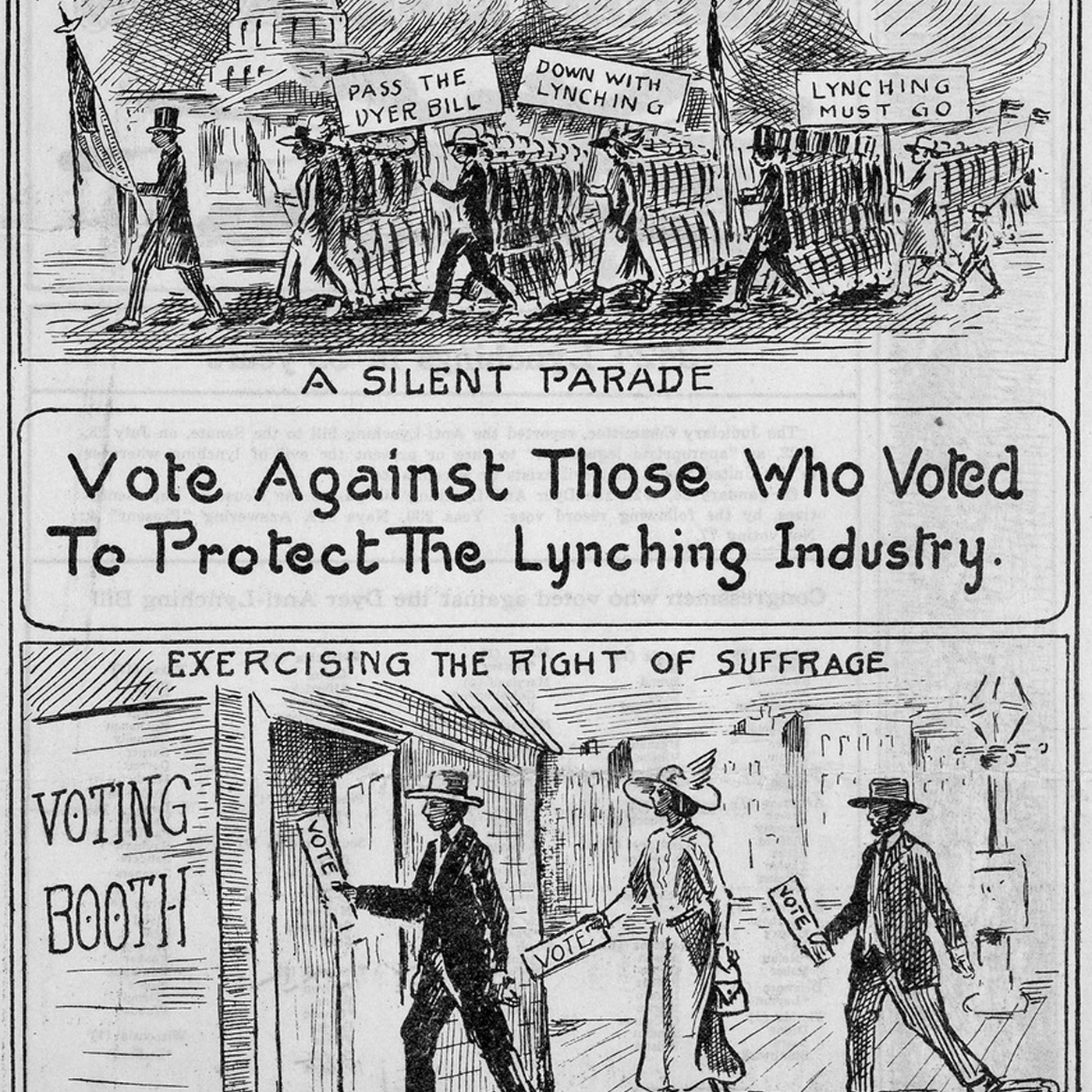
On lynching and racial oppression: How white violence denies black innocence
The practice of lynching was originally used against British loyalists. But after the Civil War it became a way of brutally suppressing the rights and agency of African American citizens.
We speak with ASU Professor Ersula Ore about her book, "Lynching: Violence, Rhetoric, & American Identity," and the continuing reality of racial injustice.
Ore traces the ways in which the practice and the language of violence are embedded in American identity, and how that affects citizens — specifically ex-slaves, Native Americans and other people of color.
Ore is the Lincoln Professor of Ethics in the School of Social Transformation and an assistant professor of African and African American studies, and rhetoric.
Photo: 1922 illustration issued by the District of Columbia anti-lynching committee/Northeastern Federation of Colored Women's Clubs. Source: Library of Congress
Episode 19
Episode 19

The necessity of trust in democracy
Many of life’s daily interactions depend on trust.
Episode 18
Episode 18

Fragmenting society, with disinformation
The rise of advanced information technologies has resulted in sophisticated efforts to fragment American society — from foreign actors like Russia,
Episode 17
Episode 17

Democracy’s roots: Equality, freedom and inclusion in ancient Greece
Democracy flourished in Athens 2500 years ago — but lasted only about a century.
Episode 16
Episode 16

How America was built on slavery: Those roots can still be felt today
American capitalism was built on the backs of slaves and the slave economy — and not just in the South.
Episode 15
Episode 15

On lynching and racial oppression: How white violence denies black innocence
The practice of lynching was originally used against British loyalists.
Episode 14
Episode 14

Crises of their own: How nonprofits are creatively confronting COVID-19
Organizations serving the public during the crisis of COVID-19 are facing their own challenges.
Episode 13
Episode 13

Love Sickness: Shakespeare, medicine and metaphors in a world of plague
Romantic love was long considered an illness — with some bizarre and harrowing treatments.
Episode 12
Episode 12

The most vulnerable among us: How the pandemic reveals inequities in health care and beyond
Poor and minority communities were at a disadvantage before COVID-19, but they are getting hit hardest now. Can the U.S.
Episode 11
Episode 11

Testing is key: Attacking the virus with rapid response, robots and reliability
Reliable and fast testing is needed all over the U.S. to confront the spread of COVID-19. We talk with Dr.
Episode 10
Episode 10

Conditions of contagion: The fears we face
In 18th-century England, viruses and bacteria were not understood — but the idea of contagion was part of the social fabric.

